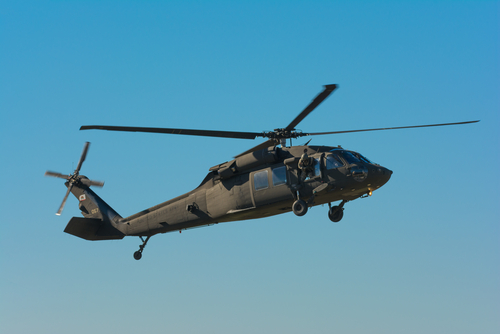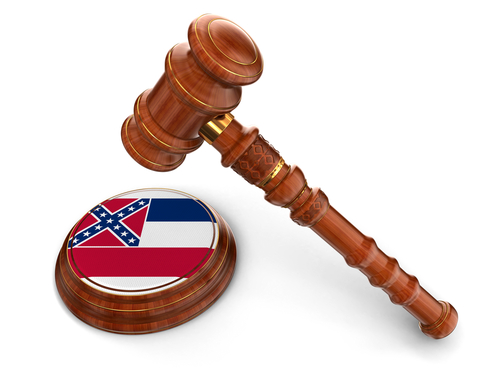Lawyer seeks damages after his snowmobile crashes into Black Hawk helicopter

A Massachusetts lawyer is awaiting a judge’s decision following a bench trial in his $9.5 million lawsuit alleging that the military was negligent for leaving a U.S. Army Black Hawk helicopter on a snowmobile route at dusk. (Photo from Shutterstock)
A Massachusetts lawyer is awaiting a judge’s decision following a bench trial in his $9.5 million lawsuit alleging that the military was negligent for leaving a U.S. Army Black Hawk helicopter on a snowmobile route at dusk.
Jeffrey Smith of Massachusetts, a 43-year-old “small-town real estate lawyer” at the time of the March 2019 crash, said the unlit camouflaged helicopter was on an abandoned air strip in Worthington, Massachusetts, MassLive.com reports.
Smith’s injuries included 12 broken ribs and a punctured lung. He has undergone several surgeries, and he has lost most of the feeling on his left side, according to his lawyers.
“The last five years, there’s been surgery, recovery, surgery, recovery,” Smith told the Associated Press.
He works only part time, and he can’t use his left arm since the crash, he said.
Smith also sued the owner of the airfield, who settled for an undisclosed amount.
The government has argued that it can’t be sued under the Federal Tort Claims Act because the training crew’s conduct was policy-related. U.S. District Judge Mark G. Mastroianni of the District of Massachusetts rejected the government’s argument, made in a motion for summary judgment, in July 2022.
At the January bench trial, the government argued that Smith was wearing tinted goggles after dusk, and he told investigators that he was aware that a helicopter was in the area. Smith’s estimated speed was 65 miles per hour, and his blood alcohol level was slightly below the legal limit, they argued.
In Smith’s proposed findings of fact, he said his speed was was between 26 miles per hour to 39 miles per hour, as determined by his expert. Before the accident, he had consumed two beers, two Adderall and one Suboxone that had been prescribed by his doctor. A witness said he was not intoxicated.
“When Mr. Smith finally was able to see the helicopter, it was too late,” according to the proposed findings of fact.
Write a letter to the editor, share a story tip or update, or report an error.



